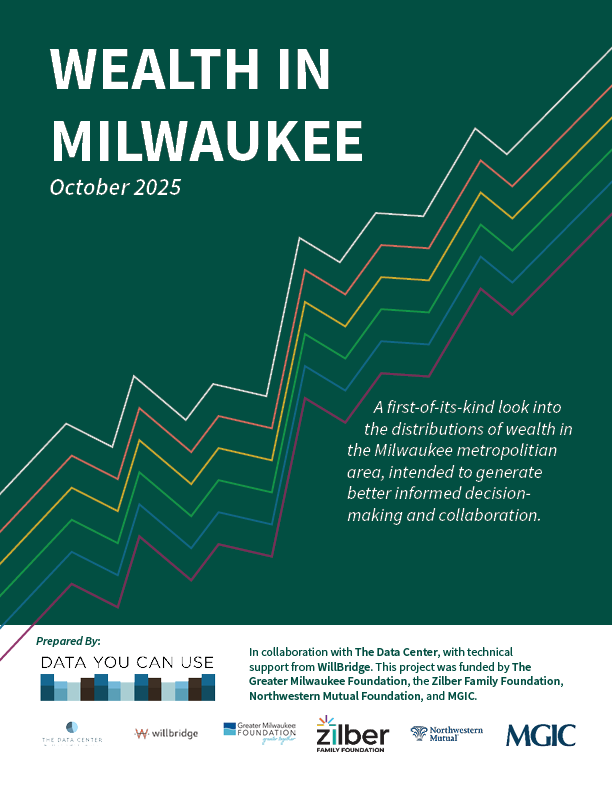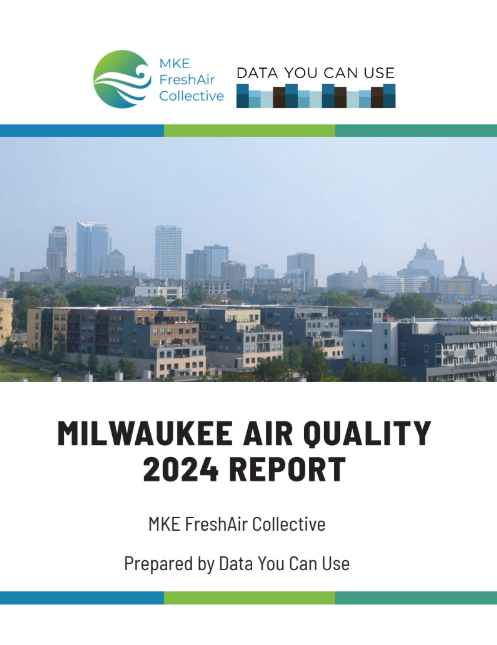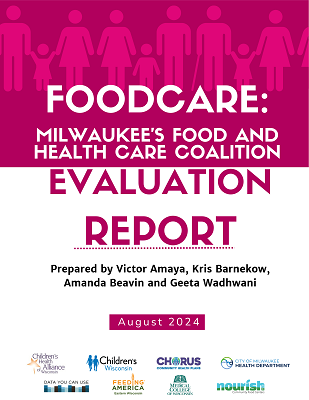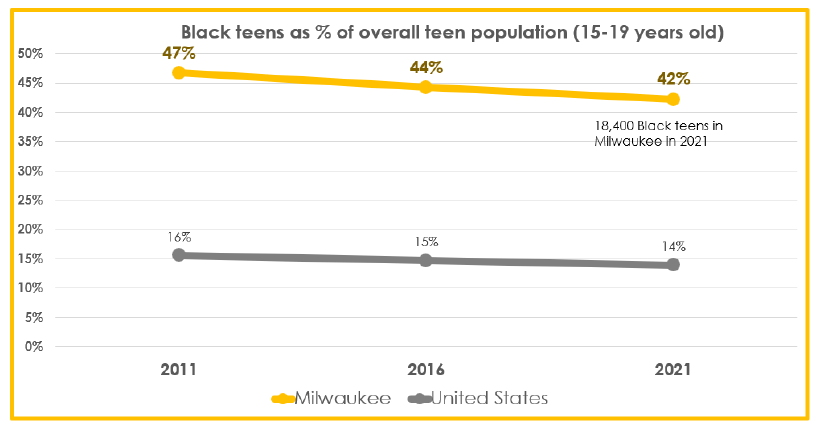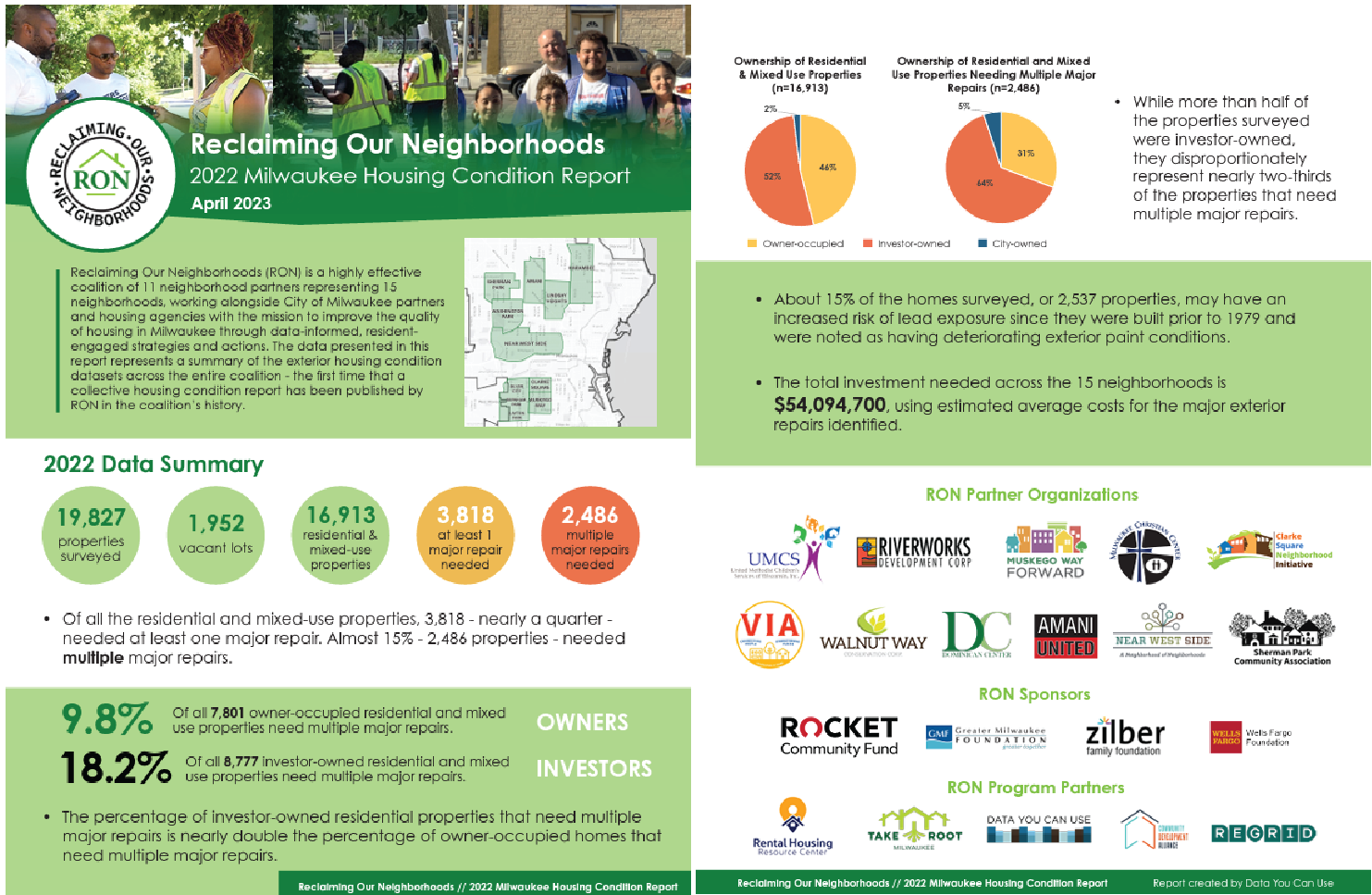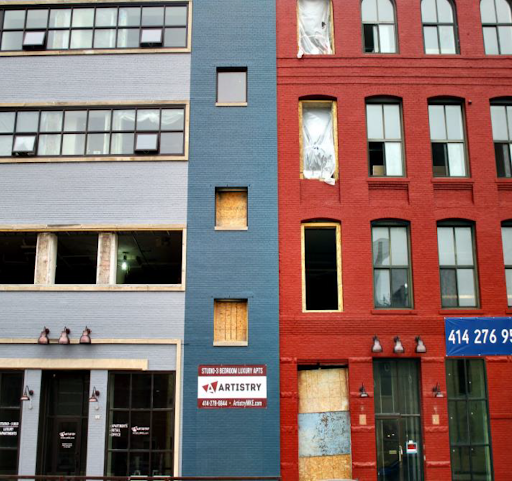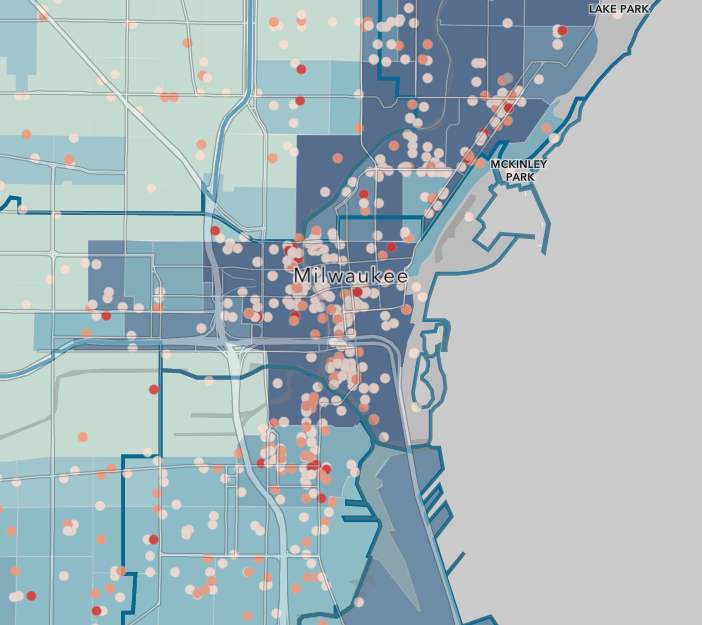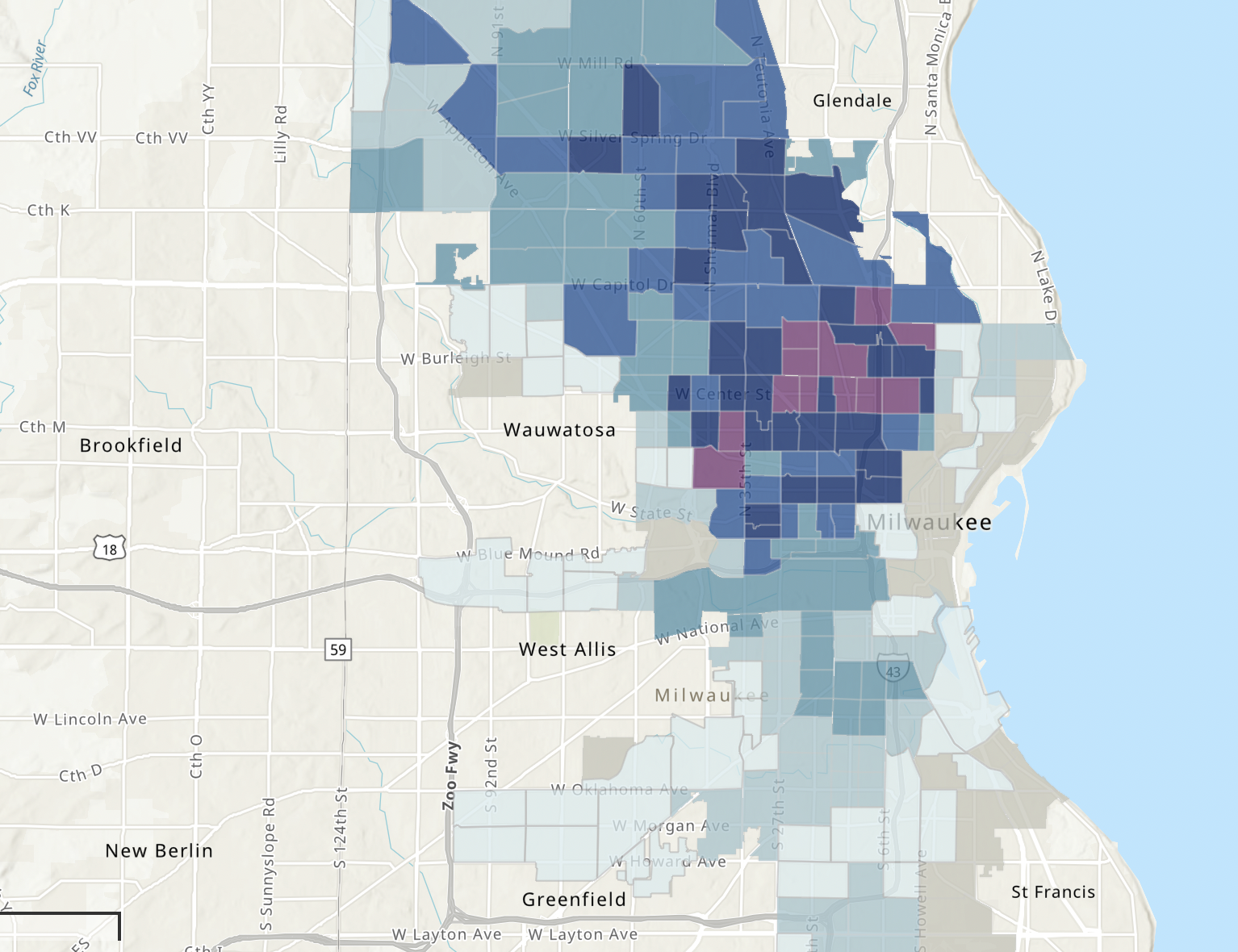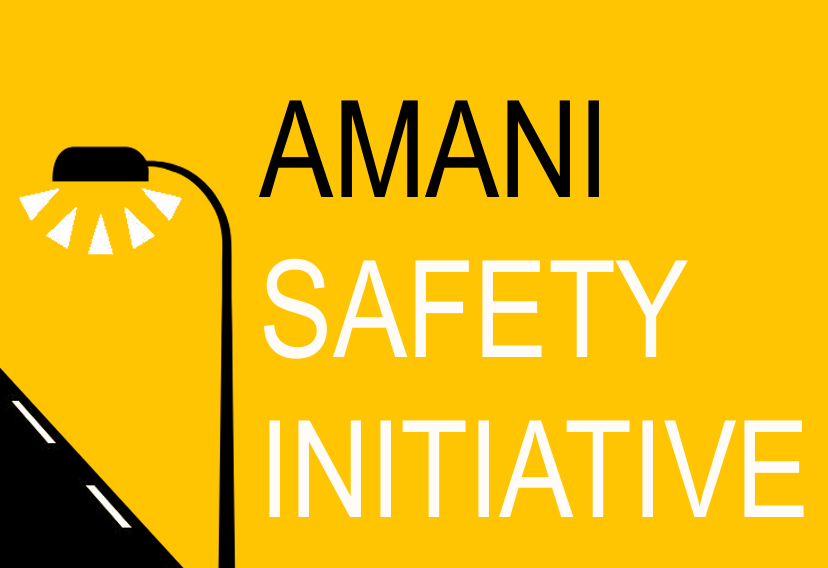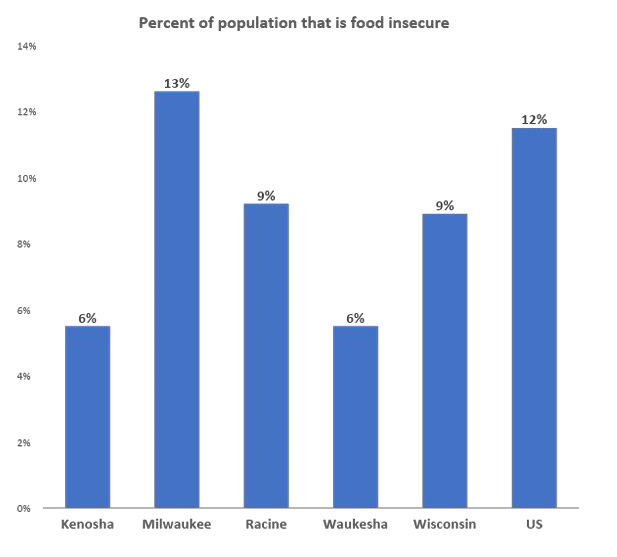Reports & Resources
Quick Links
Wealth in Milwaukee
This report debuts a first-of-its-kind look at the distribution of wealth in the Milwaukee metro area. Previously only available at a national level, local wealth estimates will play a key role in identifying specific wealth gaps and areas of need, all for the end goal of prosperity for all Milwaukeeans.
Data You Can Use prepared this report in collaboration with The Data Center, with technical support from WillBridge. This project was funded by The Greater Milwaukee Foundation, the Zilber Family Foundation, Northwestern Mutual Foundation, and MGIC.
Milwaukee Air Quality 2024 Report
In 2024, Data You Can Use partnered with the MKE FreshAir Collective to analyze and visualize the data they collected through their air quality sensors. The mission of MKE FreshAir Collective is to provide accurate, timely information about air quality in Milwaukee to residents, businesses, and policymakers, with a steadfast commitment to equity and addressing systemic racism. They use state-of-the-art, consumer accessible equipment to monitor air quality in real-time. Our 2024 report analyzes trends in air quality at a neighborhood level, utilizing the data from MKE FreshAir Collective’s air quality sensors.
FoodCare Coalition
The FoodCare Coalition is a collective of community-based and healthcare organizations, convened by the Children’s Health Alliance of Wisconsin, who seek to build capacity for food systems and health systems to partner. The initiative intends to strengthen community across food banks, food pantries and primary care clinics to increase food security and health of children and youth.
Data You Can Use serves at the data partner of the FoodCare Coalition, aiding evaluate the coalition’s progress in building relationships between food and healthcare sectors. In 2024, we published an Evaluation Report of the Coalition’s partnership and a Data Chat Report on food access in Milwaukee. Both reports can be found on the FoodCare Coalition page.
Black & Latine Youth Achievement
This project examines the intersection of quantitative data with life experience as it affects Black and Latine youth in Milwaukee. Data was collected from the U.S. Census and the Wisconsin Department of Public Instruction and shared with partners through small, focused conversations called “data chats”. Data chats provide an opportunity for those most affected and closest to the data to discuss how the data reflects their unique experiences and to consider possible solutions for issues. Check out the full report to see what themes around Black and Latine Youth Achievement in Milwaukee were uncovered over the course of two data chat projects.
Reclaiming Our Neighborhoods (RON)
Reclaiming Our Neighborhoods (RON) is a highly effective coalition of 11 neighborhood partner organizations representing 15 neighborhoods, working alongside City of Milwaukee partners and housing agencies with the mission to improve the quality of housing in Milwaukee through data-informed, resident-engaged strategies and actions.
Data You Can Use proudly serves as RON’s data partner for the housing surveys.
Turning the Corner
Launched in January 2016, this project pilots a research model that monitors neighborhood change, drives informed government action, and supports displacement prevention and inclusive revitalization. Local teams in Buffalo, Detroit, Milwaukee, Phoenix, and Twin Cities conducted independent research to understand neighborhood change and displacement risk in their communities. The Urban Institute, funded by the Kresge Foundation, synthesized lessons across the five cities. For more information, see the cross-site study here.
This study is part of a larger national effort titled Turning the Corner: Monitoring Neighborhood Change for Action, a project guided by the Urban Institute’s National Neighborhood Indicators Partnership and the Funders’ Network Federal Reserve-Philanthropy Initiative.
Who's Coming Home
Project RETURN was a winner of the 2020 Data Dream Award from Data You Can Use (DYCU) with sponsorship from the Siebert Lutheran Foundation. Project RETURN (Returning Ex-incarcerated people To Urban Realities and Neighborhoods) exists to help men and women make a positive, permanent return to community, family, and friends. Project RETURN leadership wanted to know more about the characteristics of those who would be returning to Milwaukee County so that they could better prepare and advocate for adequate resources for the recently incarcerated. Their experience led them to identify housing as a primary need and studies show that stable housing is related to reduced recidivism. Read the report here.
Liquor Licenses in the City of Milwaukee
This map was originally developed at the request of community organizers in Milwaukee, who wanted a way to determine when some institutions with liquor licenses could be held accountable for their actions or the actions of their patrons.
This map includes all of the liquor licenses in the City of Milwaukee. Hovering over a site will show details, including the name and expiration date of the current license.
Milwaukee COVID-19 Health Conditions
Created in 2021, this interactive map shows health conditions that may signal greater caution for COVID-19, mapped by census tract across the City of Milwaukee using data from the CDC’s 500 Cities Project. The map also outlines approximate neighborhood geography using Census tracts. Data You Can Use also created COVID-19 Health Digests for 16 neighborhoods across the city to help residents and elected officials better understand the risks to Milwaukee citizens with pre-existing conditions.
Health Conditions Neighborhood Data Digests
Amani Safety Initiative
The purpose of the Amani Safety Initiative, which was supported through a Byrne Criminal Justice Innovation grant from 2016 – 2020, was to engage residents and use data and best practices to improve police and community relations while increasing safety in the Amani neighborhood. Partners included Milwaukee Police Department, Dominican Center, Safe & Sound, LISC Milwaukee, Amani United, COA, Hepatha Lutheran Church, the District Attorney’s Office, and Data You Can Use.
Indicators of Poverty
This report, compiled in November 2020, is intended to provide a basic overview of population demographics and other indicators relating to poverty in the Siebert Lutheran Foundation service area. These indicators were selected for their relevance to the foundation’s expressed interest around poverty in the four counties of Kenosha, Milwaukee, Racine, Waukesha. Data at the national and state level have been provided for comparison.

